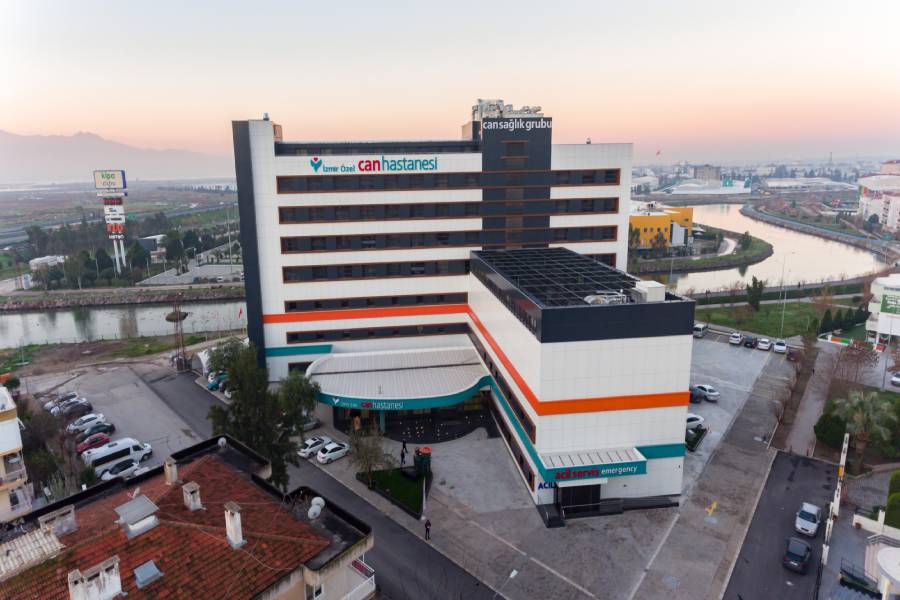Lasik Eye Surgery in Your 20s, 30s, 40s: What Changes?
Categorised in: Genel, HEALTH GUIDE
Published Date:
As we navigate through life, our vision needs and health priorities evolve. This makes the decision to undergo Lasik eye surgery age-dependent. The question of “What’s a good age to get Lasik?” is complex, varying with each decade. From the curiosity of “Can I get Lasik at 20?” to the more mature considerations in our 40s, this section aims to shed light on the evolving perspectives on this advanced eye procedure.
Exploring the possibilities of corrective surgery in your 20s or the benefits in later years, the timing of Lasik is crucial. The question “How young can you get Lasik?” is a common concern. We aim to provide age-specific insights, dispelling misconceptions and guiding towards informed decisions about Lasik eye surgery at every stage of adult life. Join us as we explore the factors that change with each decade.
What is Lasik Eye Surgery?
Lasik eye surgery has revolutionised vision correction, offering quick results and significant improvements in vision. This section explores the Lasik surgery process, its benefits, and age considerations for candidates.
Lasik uses laser technology to reshape the cornea, the eye’s transparent front part. It corrects refractive errors like myopia, hyperopia, and astigmatism. The process involves a detailed pre-surgery evaluation, a 20-minute surgery for both eyes, and a short recovery.
One major benefit of Lasik is the quick recovery, leading to improved vision almost immediately. Many patients see a significant improvement in clarity without glasses or contact lenses. This enhances daily life and activities.
The question of “How young can you get Lasik?” is common. Candidates should be at least 18 years old. However, their eyes must have a stable vision prescription for at least a year before surgery. This stability is crucial for a successful outcome.
Understanding Lasik and age requirements helps set realistic expectations and timelines. It highlights the importance of consulting an experienced ophthalmologist. This ensures the procedure meets individual visual needs. By exploring these aspects, individuals can make informed decisions about enhancing their vision through Lasik.
Considerations for Lasik in Your 20s
Choosing to have Lasik surgery in your 20s requires careful thought. If you’re wondering ‘can I get lasik at 20’ or ‘can you get lasik at 18’, the first thing to consider is your vision’s stability. Experts usually suggest waiting until your prescription has stayed the same for at least a year or two. This is key to avoid significant vision changes after the surgery.
When thinking about Lasik early on, consider your lifestyle too. If you’re into sports or have a job that demands clear vision, Lasik could be a great option. But, it’s crucial to talk to a specialist to see if your lifestyle fits the surgery’s requirements. Also, understanding both the benefits and risks of Lasik at a young age is vital for making a well-informed choice.
Deciding on Lasik in your 20s needs thorough research and expert advice. It can lead to years of clear vision without glasses. Yet, it’s important to weigh all the considerations carefully.
Lasik Eye Surgery Essentials in Your 30s
Choosing Lasik in your 30s can be a wise decision. It allows for a long period of clear vision before presbyopia and other age-related vision problems start. This decade is often characterised by stable prescriptions, making it an ideal time for Lasik. People in their 30s usually have not seen significant changes in their lens prescription for at least two years, a crucial factor for suitability.
In the 30s, many find their careers and lifestyles require better vision. This is due to increased outdoor activities and screen time from work demands. Lasik can greatly enhance these aspects of life. It also offers long-term financial benefits by reducing the costs of contact lenses and glasses.
However, it’s vital to have a detailed consultation with an ophthalmologist. Discuss how typical vision changes in this decade might affect Lasik’s outcome and longevity. It’s also important to ensure your eyes are healthy and without significant corneal issues before the procedure. Those getting Lasik in their 30s often experience quicker recovery times and fewer complications compared to older age groups.
In conclusion, while Lasik should be tailored to individual vision health and lifestyle needs, the 30s are particularly advantageous. This age aligns with the peak of ocular health and the demands of a busy, mid-life schedule.
The Ideal Candidate for Lasik Surgery: Age Matters
Discussions about the best age for Lasik surgery are common among those considering it and eye care experts. Age is not the sole factor in determining if someone is a good candidate for Lasik. However, certain age-related aspects significantly impact the potential success of the surgery. Grasping these factors can clarify who might benefit most from this life-changing procedure.
Firstly, the stability of vision with age is key in assessing Lasik suitability. Generally, people in their mid-20s to early 40s have more stable vision. This makes it an ideal time to consider Lasik. The main reason is that refractive errors tend to stabilise during this period. This stability is crucial because changes in vision can affect the surgery’s success.
Moreover, the thickness of the cornea, which can alter with age, is a critical factor in Lasik candidacy. For the surgery to be successful, the cornea must be thick enough to be reshaped. As people age, their corneas may thin or weaken, making older adults less likely to be good candidates. Hence, regular eye exams are crucial to check if the cornea is suitable for Lasik.
Lastly, considering the outcomes of Lasik based on age is important. Younger patients often recover quickly, while older adults may need more time and face a slightly higher risk of complications. Yet, age should not be a barrier. A detailed evaluation by a skilled ophthalmologist can determine if an individual’s eye health, prescription stability, and expectations match what Lasik can offer. This evaluation takes into account age-related factors.
In summary, while there’s no universal answer to the ideal age for Lasik, various factors including vision stability, corneal condition, and eye health should be considered. Most importantly, seeking advice from a seasoned eye care professional is crucial for making an informed decision about Lasik surgery.
Advantages and Challenges of Lasik in Your 40s
Choosing Lasik in your 40s comes with both benefits and challenges that require thoughtful evaluation. This age often marks the beginning of presbyopia, making reading glasses essential. Therefore, it’s crucial to consider how well Lasik can adapt to changing vision needs, especially the need for reading glasses post-surgery.
Lasik in your 40s can significantly enhance your quality of life. It offers the freedom from corrective lenses during activities like driving and sports. Advances in Lasik technology also allow for more precise customisation, tailored to the unique vision corrections of individuals in their 40s.
Yet, there are important Lasik surgery considerations to keep in mind. Candidates must have stable vision and undergo detailed assessments to check cornea health and overall suitability. Additionally, addressing the risk of drier eyes, common in this age group, is part of the pre-surgical evaluation.
In summary, while Lasik in your 40s is attractive, it involves various considerations to ensure it meets your health and lifestyle needs. Seeking advice from a reputable ophthalmologist can offer personalised guidance based on your specific eye conditions and expectations.
International Lasik Options: Can Hospital in Turkey
The global landscape of Lasik surgery has expanded, with Turkey emerging as a key destination for medical tourists. Can Hospital in Turkey, particularly its Izmir branch, is a prime example of where advanced technology meets cost efficiency and medical expertise. It highlights the potential of international health care services for vision correction.
Considering Lasik surgery in Turkey, one must appreciate Can Hospital in Izmir’s technological advancements. It uses state-of-the-art equipment and cutting-edge techniques, offering care that often exceeds international standards. Moreover, the cost of Lasik surgery at Can Hospital is significantly lower than in many Western countries. This does not compromise on the quality of the procedure or the skill of the surgeons.
The ophthalmologists at Can Hospital in Turkey are highly skilled and attract patients from around the world. Their expertise, combined with warm hospitality and comprehensive patient care, makes Can Hospital a top choice for Lasik surgery abroad. This commitment to excellence underscores Turkey’s growing role in the international Lasik surgery landscape.

Why British Citizens Choose Turkey for Health Services?
British citizens are increasingly opting for Turkey when seeking medical treatments due to a combination of superior healthcare services, affordability, […]

Psychological Effects of Genital Aesthetics on Body Image
In a society increasingly focused on physical perfection, the realm of genital aesthetics has surfaced as an area of both […]

Common Concerns About Genital Plastic Surgery
Genital plastic surgery, a burgeoning field within the realm of cosmetic enhancements, has witnessed a notable surge in popularity. Procedures […]

In which cases is labiaplasty necessary?
Labiaplasty, a procedure that has recently garnered significant attention, involves the surgical reduction of the labia minora. This operation, also […]

Healthy Recovery Process After Genital Aesthetic Surgery
Day Things To Do Things to Avoid 1-7 Days – Bed rest – Using medications recommended by the doctor – […]